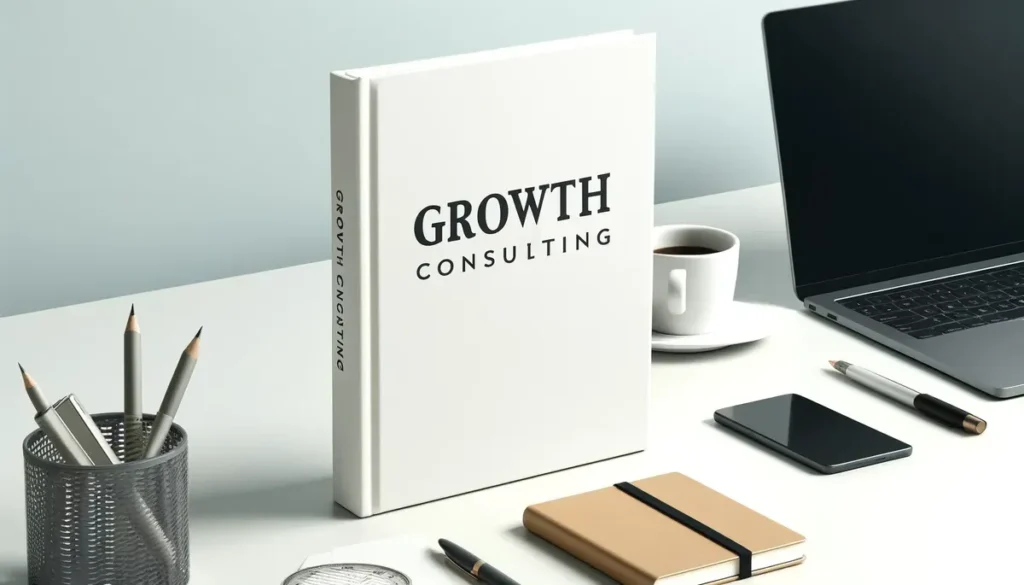
Scaling a SaaS startup is a daunting task, filled with numerous challenges and complexities. Many SaaS founders struggle with finding the right strategies to drive sustainable growth and often face obstacles that hinder their progress. The constant pressure to achieve rapid growth while managing limited resources can lead to frustration and burnout.
These challenges can feel overwhelming, making it difficult to stay focused and motivated. Without the right guidance, many startups fail to reach their full potential. The lack of a clear growth strategy and expert support can result in missed opportunities and slow progress.
Growth consulting offers a solution. By providing tailored strategies and expert guidance, growth consultants help SaaS businesses navigate these challenges and accelerate their growth. This article explores the role of growth consulting in the SaaS industry, its benefits, key strategies, and success stories, offering a comprehensive guide for SaaS founders looking to scale their startups.
Let’s dive in!
Understanding Growth Consulting
What is Growth Consulting?
Growth consulting involves partnering with an expert who provides strategic advice and actionable insights to help businesses achieve and sustain growth. Unlike traditional consulting, which may focus on a broad range of business issues, growth consulting is laser-focused on identifying and implementing strategies that drive measurable growth. This includes areas such as revenue enhancement, market expansion, product optimization, and customer acquisition.
The Role of a Growth Consultant
A growth consultant plays a pivotal role in the growth journey of a SaaS startup. Their responsibilities include:
- Diagnosing Growth Challenges: Identifying the bottlenecks and barriers to growth.
- Formulating Strategies: Developing tailored strategies to overcome these challenges.
- Implementing Solutions: Guiding the implementation of these strategies to ensure effective execution.
- Monitoring and Adjusting: Continuously tracking progress and making necessary adjustments to optimize outcomes.
Growth consultants bring a wealth of experience and a fresh perspective to the table, helping startups avoid common pitfalls and leverage opportunities for growth.
Benefits of Growth Consulting for SaaS Startups
1. Accelerating Revenue Growth
One of the primary benefits of growth consulting is accelerated revenue growth. Growth consultants help SaaS companies identify untapped revenue streams, optimize pricing strategies, and enhance sales processes. For example, a SaaS company might increase its annual revenue by 20% by implementing a tiered pricing model and optimizing its sales funnel.
2. Enhancing Market Positioning
Effective market positioning is crucial for SaaS startups to stand out in a crowded market. Growth consultants assist in crafting a compelling brand narrative, identifying unique value propositions, and positioning the product to resonate with target customers. This strategic positioning can lead to increased brand awareness and market share.
3. Improving Product-Market Fit
Achieving a strong product-market fit is essential for sustainable growth. Growth consultants work with SaaS startups to refine their product offerings, ensuring they meet the needs and preferences of their target audience. This may involve conducting customer feedback sessions, analyzing usage data, and iterating on product features.
4. Optimizing Marketing and Sales Strategies
Growth consultants help SaaS startups develop and execute marketing and sales strategies that drive customer acquisition and retention. This includes identifying the most effective marketing channels, creating targeted campaigns, and optimizing the sales process to convert leads into paying customers.
5. Data-Driven Decision Making
In the SaaS industry, data is a powerful tool for driving growth. Growth consultants leverage data analytics to inform decision-making, identify trends, and measure the effectiveness of growth strategies. By utilizing tools such as Google Analytics, Mixpanel, and Salesforce, consultants can provide actionable insights that lead to informed and strategic decisions.
Key Strategies in Growth Consulting for SaaS
1. Market Research and Analysis
Conducting thorough market research is foundational for any growth strategy. This process involves gathering and analyzing data about your industry, competitors, and target audience to make informed decisions.
- Identifying Market Trends: Staying updated with industry trends helps in anticipating changes and adapting strategies accordingly. For instance, the shift towards remote work has significantly increased the demand for SaaS solutions that support remote collaboration and productivity.
- Competitor Analysis: Understanding the strengths and weaknesses of your competitors can provide valuable insights into potential opportunities and threats. Tools like SEMrush and SimilarWeb can help analyze competitors’ online presence, traffic sources, and keyword strategies.
- Customer Insights: Conducting surveys, focus groups, and interviews with existing and potential customers can reveal valuable insights into their needs, preferences, and pain points. This data helps in refining product offerings and marketing strategies.
2. Customer Segmentation and Targeting
Effective customer segmentation and targeting are critical for maximizing marketing and sales efforts. By dividing the market into distinct segments based on demographics, behavior, or needs, SaaS companies can tailor their approaches to each group.
- Behavioral Segmentation: Grouping customers based on their behavior, such as usage patterns or purchase history, can help in designing personalized marketing campaigns. For example, offering premium features to highly engaged users can drive upgrades and increase revenue.
- Demographic Segmentation: Identifying key demographics such as age, gender, industry, and job role can help in creating targeted content and advertisements. LinkedIn Ads and Facebook Ads provide robust targeting options based on demographic data.
- Needs-Based Segmentation: Understanding the specific needs and pain points of different customer segments allows for more effective product positioning and messaging. For example, a SaaS product offering advanced security features may target industries with stringent compliance requirements.
3. Growth Hacking Techniques
Growth hacking involves experimenting with unconventional and innovative strategies to achieve rapid growth. This approach is particularly effective for SaaS startups looking to scale quickly with limited resources.
- Viral Marketing: Creating shareable content or features that encourage users to spread the word about your product can lead to exponential growth. Dropbox’s referral program, which offered additional storage space for referrals, is a classic example of successful viral marketing.
- Product-Led Growth: Leveraging the product itself as the primary driver of growth involves designing features that promote user engagement and retention. Freemium models, in-app onboarding, and user-friendly interfaces are key components of product-led growth strategies.
- Content Marketing: Providing valuable content such as blog posts, whitepapers, and webinars can attract and engage potential customers. HubSpot’s extensive library of educational content has been instrumental in its growth and brand authority.
4. Leveraging Technology and Automation
Utilizing technology and automation can streamline operations, improve efficiency, and enhance scalability for SaaS startups.
- Marketing Automation: Tools like HubSpot, Marketo, and Mailchimp automate repetitive marketing tasks such as email campaigns, social media posting, and lead nurturing. This allows marketing teams to focus on strategic activities and personalized interactions.
- Sales Automation: CRM systems like Salesforce and Pipedrive automate sales processes, track customer interactions, and provide valuable insights into the sales pipeline. Automated follow-ups and personalized outreach can significantly improve conversion rates.
- Customer Support Automation: Implementing chatbots and AI-driven support systems can provide instant assistance to customers, improving response times and satisfaction. Intercom and Zendesk offer robust solutions for automating customer support.
5. Continuous Improvement and Iteration
Growth consulting emphasizes the importance of continuous improvement and iteration. This involves regularly reviewing and refining strategies based on performance data and feedback.
- A/B Testing: Conducting A/B tests on different aspects of your marketing campaigns, product features, and user interfaces helps identify what works best. This data-driven approach allows for continuous optimization and improvement.
- Feedback Loops: Establishing feedback loops with customers, employees, and stakeholders ensures that valuable insights are continuously gathered and acted upon. Regularly scheduled reviews and surveys can help identify areas for improvement and innovation.
- Performance Metrics: Tracking key performance indicators (KPIs) such as customer acquisition cost (CAC), lifetime value (LTV), churn rate, and user engagement provides a clear picture of growth and performance. This data is crucial for making informed decisions and adjustments.
Case Studies and Success Stories
Case Study 1: SaaS Company A
- Overview of the Company and Challenges Faced:
- Company A, a SaaS provider of project management tools, faced stagnating growth due to a highly competitive market.
- Strategies Implemented by the Growth Consultant:
- Conducted a comprehensive market analysis to identify underserved segments.
- Implemented a product-led growth strategy with a focus on improving user onboarding and engagement.
- Developed targeted content marketing campaigns to attract specific customer segments.
- Results and Impact on the Company’s Growth:
- Increased user retention by 30% through enhanced onboarding experiences.
- Achieved a 25% increase in website traffic and lead generation from content marketing efforts.
- Expanded market share by capturing a niche segment previously overlooked.
Case Study 2: SaaS Company B
- Overview of the Company and Challenges Faced:
- Company B, a SaaS provider of customer support solutions, struggled with high churn rates and low customer satisfaction.
- Strategies Implemented by the Growth Consultant:
- Conducted customer feedback sessions to identify pain points and areas for improvement.
- Introduced advanced analytics to track user behavior and identify issues proactively.
- Implemented a robust customer support automation system to enhance response times and satisfaction.
- Results and Impact on the Company’s Growth:
- Reduced churn rate by 20% through proactive issue resolution and improved customer support.
- Increased customer satisfaction scores by 15% with faster response times and personalized support.
- Boosted annual recurring revenue (ARR) by 18% through upselling and cross-selling initiatives.
Selecting the Right Growth Consultant
Key Qualities to Look For
When selecting a growth consultant for your SaaS startup, it’s important to consider the following qualities:
- Industry Experience: Look for consultants with a proven track record in the SaaS industry.
- Analytical Skills: Strong analytical skills are essential for data-driven decision-making.
- Innovative Thinking: The ability to think outside the box and come up with creative solutions.
- Communication Skills: Effective communication is crucial for understanding needs and conveying strategies.
- Client Testimonials: Positive feedback and success stories from previous clients.
Evaluating Past Performance
Assessing the track record of potential consultants involves reviewing their past performance and achievements. Key areas to evaluate include:
- Client Success Stories: Look for documented case studies and testimonials that demonstrate the consultant’s impact on other SaaS companies.
- Measurable Results: Focus on consultants who can provide tangible metrics and data to support their success claims.
- Reputation: Check online reviews, industry forums, and professional networks to gauge the consultant’s reputation.
Building a Collaborative Relationship
Establishing a collaborative relationship with your growth consultant is key to achieving long-term success. Consider the following:
- Clear Communication: Establish open lines of communication to ensure alignment and transparency.
- Shared Goals: Define clear goals and expectations from the outset to ensure both parties are working towards the same objectives.
- Ongoing Collaboration: Regular check-ins and updates foster a strong partnership and allow for continuous feedback and adjustment.
Unlocking the Full Potential of Your SaaS Startup with Growth Consulting
Growth consulting has proven invaluable for SaaS startups aiming to scale rapidly and sustainably. Many businesses struggle with optimizing operations, overcoming challenges, and unlocking new revenue streams. Without expert guidance, these tasks can be daunting.
Growth consultants employ data-driven strategies and expert insights to tackle these issues. They enhance market positioning, improve product-market fit, and leverage innovative growth hacking techniques and technology. This comprehensive approach drives success across a wide spectrum of activities.
Partnering with a growth consultant brings specialized knowledge and a fresh perspective. This collaboration helps SaaS startups make informed decisions, avoid common pitfalls, and seize growth opportunities. The case studies and success stories in this article show the tangible benefits and transformative impact of growth consulting on various SaaS companies.
Ready to take your SaaS startup to the next level? We can help!

